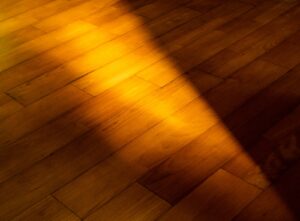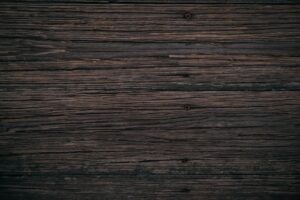
The constant sound of footsteps in a home can be tough to bear, and it’s no secret that homeowners are constantly asking the question “can you soundproof hardwood floors?”. The answer is a pretty straightforward one.
Yes, you can soundproof hardwood floors. Not just hardwood floors, but other types of floors. If you aren’t satisfied with the noise generated from walking on your hardwood floors, I’ll be sharing a cheap solution you can apply shortly.
Contents
- 1 How to soundproof hardwood floors
- 2 How to soundproof new floors
- 3 The factors to note when soundproofing a new floor
- 4 FAQs
- 5 Can floors be made soundproof?
- 6 What is the best floor-to-floor soundproofing?
- 7 What type of flooring will ensure a near-noiseless floor?
- 8 Is tile quieter than hardwood?
- 9 Conclusion– Can You Soundproof Hardwood Floors?
How to soundproof hardwood floors

When it comes to soundproofing floors, you should note if the floor is new or old, and by old, I mean several years before you moved in.
This information is key if you want to do a very good job on your floor.
Old floors are floors that aren’t subject to change, especially by the occupant. The reason could be due to the tenancy or rental agreement you might have with your landlord, or subway floors that are bound to remain the way they are.
Regardless of this limitation, there are other things you can do to help the situation. Some of them include the following:
Step 1: Install thick rugs
The thicker your rug, the more sound it can absorb. If your floor is bare, the first and most easy step to increase its soundproofing properties would be to install thick rugs to cover every area.
If you are opportune to walk around the apartment before moving in, ensure you note the areas with more squeaks and increase the padding of the rug in such areas.
For professional setups, it would be imperative you install rugs, especially in areas where sound would be recorded, or else you might have sound reflection all over the place you need to deal with.
Step 2: The use of furniture
The second step would be to use what you already have—your furniture.
One likely reason you noticed the floor needed soundproofing in the first place was that the room was empty and you had to walk around most of the area.
However, in the presence of your furniture, plus the rugs you already have installed, the noise wouldn’t be too noticeable. Firstly, locate the areas with more squeaks and place a piece of furniture over them, then, ensure you invest in lots of household furniture especially throw pillows to help you absorb the sound.
It also helps that your furniture’s surface should be able to allow sound penetration and not reflect it. Furniture surfaces like leather and the like would reflect sound instead of allowing the foam to absorb them, thereby, defeating the purpose.
Any noise that escapes the rugs would most likely be absorbed by your soft furniture.
Also Read: Are Rugs Good For Soundproofing?
Step 3: Tackle the ‘root’ of the problem
If you are lucky enough to rent an apartment with a basement, then you would have solved half of the soundproofing need for such floors.
Try and gain access into the basement and install a sound installation system such as Quiet Batt in spaces underneath the floor, as well as the ceiling tiles. This would help to remarkably absorb most of the noise that’s being made.
The steps listed above should help you a lot in soundproofing an old floor, especially if you are doing it yourself (DIY).
The next step is how to soundproof newly constructed floors.
How to soundproof new floors
For new floors, you would want to use sealants in place of nails since nails can easily transmit noise, especially if you have an apartment below.
You should also consider using tapes, adhesives, and other items that wouldn’t leave you with a creaking sound after some time.
Step 1: Use floor underlayment during the installation
Soundproof underlayment is necessary if an apartment is above another, as it helps to reduce the amount of sound that travels from the floor to the ceiling of the other apartment.
Floor underlayment can be placed before installing a floor finish such as hardwood, tiles, and Carpets. With soundproof underlayment in place before the actual installation of floors, there’s very little amount of sound traveling to the room beneath or within the actual room itself.
Step 2: Use green glue as a sealant
If you are in the business of installing floors in new apartments, then you shouldn’t be a stranger to the wonders of green glue compounds.
Based on my extensive research, the green glue compound does an excellent job when used as a bonding agent between floor panels.
Simply apply a good amount between floor panels to help drastically reduce the number of vibrations and the sound of footsteps around the room. It also helps in reducing the amount of sound that is transferred to the apartment below, as the glue acts as a sound deadener.
The factors to note when soundproofing a new floor
The soundproofing of a new floor actually begins with the construction of the floor. Here are some useful tips to help you.
Nail or glue?
There are several options to use when fastening hardwood to the floor, but the most common include nails and glue. Both will get the job done—no doubt—but when you consider the soundproofing options, there’s one clear winner. Glue.
Using glue instead of the nail will help in arresting floor noise more than a nail, but this may not apply to all floor finishes though. However, if given an option, go for glue.
Floor underlayment
If you don’t want to ever worry about a floor’s soundproofing capabilities, then floor underlayment is the way to go as explained earlier.
Floor underlayment can be used on most floor finishes, and they do a very good job in both sound blocking and absorption.
For hardwood floor installation, experts have highly recommended Impact barrier underlayment as the best option on the market. This is because experts who have used them firsthand, say they have the best technology advancement for hardwood finishes compared to others on the market. They also strongly claim it is designed with a membrane that’s mold and moisture-resistant, as well as a massive reduction in footfall noise that is very rampant with hardwood floor finishes.
The impact of impact barrier underlayment is not only felt in hardwood floor finishes but also in composite floating floors. Composite floating floors are known for causing echo in a room, but with this underlayment in place, that’s no longer a problem. The vapor technology in its composition also ensures that your floor is moisture-resistant.
For stone and tile finishing, you would want to consider using PROFLEX 90 MSC floor underlayment for the best soundproofing result. This product is mixed with the tile mortar and is applied before setting the tile or stone in place. You may see it as just an added mixture to what you already have, but you can easily tell the difference when you step on them after the installation is complete. The difference is very clear compared to a mortar without the PROFLEX 90 MSC floor underlayment.
Finally, on this subject, you should note that soundproofing your floor helps you address impact noise and airborne noise in your home.
Impact noise is made by your feet or other mechanisms that may have contact with the floor. If a floor is not soundproof, this noise can be a problem, especially if there’s an apartment underneath.
Airborne noise on the other hand are noises made from your speakers or other mechanisms that do not impact the floor. If a floor is soundproof, it helps to absorb airborne noises, thereby, reducing the amount of echo created.
FAQs
Can floors be made soundproof?
Yes, floors can be made soundproof. The best and most effective way to make your floor soundproof is to use underlayment. What it does is act as an absorbing bridge between the floor finish and the actual floor, by absorbing the sound and vibrations that would have been a source of disturbance to a room or the room below.
What is the best floor-to-floor soundproofing?
Many soundproofing experts have said Carpets do a wonderful job in absorbing impact sound and others. However, they also all agree that a very thick rug would be the best option for hard surfaces such as ceramic and hardwood finishing.
What type of flooring will ensure a near-noiseless floor?
Experts have recommended a type of floor known as cork flooring as the best option if you want an almost noiseless floor. Cork flooring is used in areas where you wouldn’t want to be disturbed by foot movements, such as libraries, churches, and other reserved areas you can think of. They are usually made from the material used in covering wine bottles, hence the name “cork” flooring. And if you are the inquisitive type, you’ll notice that the cork of wine almost feels like rubber when you press hard against it.
Is tile quieter than hardwood?
The answer to this question depends on the density of the tile or wood in question because they vary from product to product. However, research has shown that tiles are usually quieter when compared to hardwood.
Conclusion– Can You Soundproof Hardwood Floors?
Some persons might be against soundproofing floors, simply because they want to hear when a footstep is approaching, but I beg to differ, especially when you have kids at home and a neighbor under your floor. I hope the techniques shared in this article will go a long way in helping with your floor soundproofing problems. Kindly let me know what you think if you have any questions in the comments section. Cheers.
